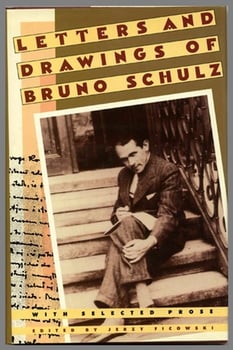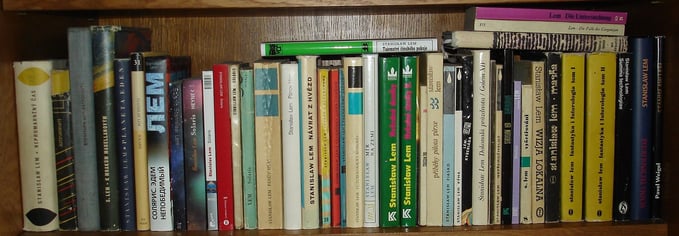The twentieth century was a complicated and often tragic one for Poland. The years leading up to Polish independence and the Second Republic were characterized by uprisings against the partitioning powers surrounding the region, and that independence was short-lived. During World War II, Poland was invaded and occupied by Nazi Germany, and many of the most notorious concentration camps were located within Poland’s borders. Once the war came to an end, Communist Poland, within the Soviet sphere of influence, became a repressive state. In the decades that followed, Polish citizens waged acts of resistance against various regime policies, culminating in some ways with the Solidarity movement in the early 1980s. Yet despite—or perhaps due to—its tumultuous political past, Poland has produced some of the most notable writers of the modern period. Are you interested in learning more about Poland and its writers of imaginative literature? We have some suggestions for you.
Bruno Schulz’s The Street of Crocodiles (1934)
 Bruno Schulz is remembered as one of the great Polish writers of the twentieth century. He was born in 1892 to Jewish parents in Drohobycz, a city that is now located in the Ukraine following the re-drawing of certain European borders. During the Nazi occupation of Poland, Schulz was forced to live in the Drohobycz Ghetto. While walking home one night in 1942, a Gestapo officer shot and killed him. Although he did not get the chance to complete a lifetime of work, Schulz’s small collection of writings is glorious enough to place the writer on any must-read list of modern fiction. Of his writings, Schulz is, perhaps, best known for his short fiction.
Bruno Schulz is remembered as one of the great Polish writers of the twentieth century. He was born in 1892 to Jewish parents in Drohobycz, a city that is now located in the Ukraine following the re-drawing of certain European borders. During the Nazi occupation of Poland, Schulz was forced to live in the Drohobycz Ghetto. While walking home one night in 1942, a Gestapo officer shot and killed him. Although he did not get the chance to complete a lifetime of work, Schulz’s small collection of writings is glorious enough to place the writer on any must-read list of modern fiction. Of his writings, Schulz is, perhaps, best known for his short fiction.
The Street of Crocodiles (1934) is the title of his most famous collection in English translation, and it’s also the title of one of the stories within the book. To demonstrate the beauty of his language, even in translation, we thought we’d give you a quick glance at a passage from “August”:
“Market Square was empty and white-hot, swept by hot winds like a biblical desert. The thorny acacias, growing in this emptiness, looked with their bright leaves like the trees on old tapestries. Although there was no breath of wind, they rustled their foliage in a theatrical gesture, as if wanting to display the elegance of the silver lining of their leaves that resembled the fox-fur lining of a nobleman’s cost.”
Miron Białoszewski’s A Memoir of the Warsaw Uprising (1977)
Miron Białoszewski is known by many readers as one of the great Polish poets of the mid-20th century. While much of his poetry never was translated into English, one of his most significant works of prose is available to English-language readers: A Memoir of the Warsaw Uprising. This work of creative nonfiction tells an account of the Warsaw Uprising that occurred on August 1, 1944, as Polish citizens staged a massive resistance effort against the occupying Nazi forces. While hundreds of thousands of Poles were killed as the Nazis suppressed the resistance fighters, the event continues to carry symbolic weight.
Stanisław Lem’s Solaris (1961)
It might be science fiction, but in many ways, Stanisław Lem’s now-famous novel Solaris is no less political than the two texts we mentioned previously. Many critics have cited the novel as an anti-communist metaphor, while others have imagined it as a commentary on ecological disaster. In the narrative, the protagonist, Kris Kelvin, is a psychologist whose work focuses on his study of the planet Solaris. Yet through the novel, the life of the planet itself takes on new meaning, revealing the dangers of human ignorance and the powers of human consciousness. The novel has been adapted for the screen many times, most notably by Russian filmmaker Andrei Tarkovsky in 1972.
There are many more fantastic books from Poland waiting to be discovered, including works of poetry by Czesław Miłosz and Zbigniew Herbert, as well as works of fiction by writers such as Tadeusz Borowski. We hope the books we’ve listed will get you started in your literary travel through Poland.










